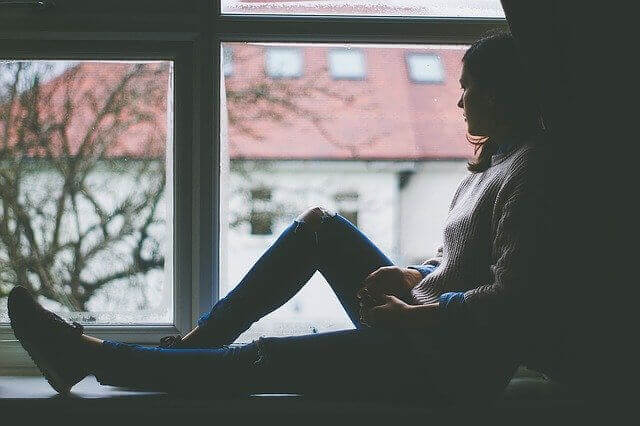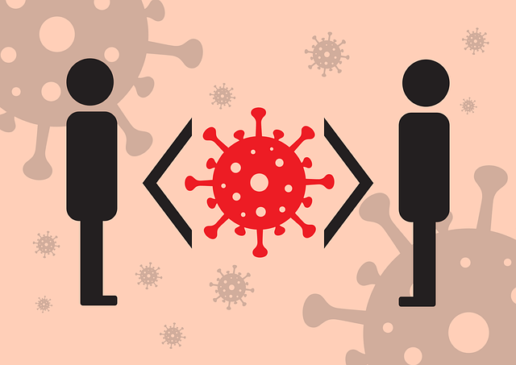Ever since the outbreak of the coronavirus, many people are suffering from the pangs of loneliness, anxiety and depression due to social isolation. If you or someone you know are missing the pre-pandemic days and struggling with the woes of social isolation with bouts loneliness in between, this post with help you tremendously today.
Understanding the impact of social isolation on you or a loved one
Everyone requires social connections to thrive and survive in the world. However, as people age, they often find themselves spending more time by themselves. There is a difference between being “alone” and feeling “lonely”. There are some people who enjoy their own company and so being “alone” is something they perfectly enjoy and look forward to it.
For example, you often find people traveling solo, or reading a book or gardening alone. This desire of being on their own nurtures and enriches their soul. The problem starts when someone feels “lonely or desolate” and this can either happen to you or someone you already know.
Help at hand- coping with loneliness

Loneliness and social isolation (primarily now due to the global COVID-19 Pandemic now) will leave you or someone else more vulnerable to physical and mental ailments. This affects your overall well-being and self-care. Studies reveal that both social isolation and loneliness are associated with a higher risk of heart ailments like heart disease, mild to acute depression and cognitive decline.
Know the difference between social isolation and loneliness
Social isolation does not mean loneliness however both are related. There is a difference between these two terms. “Loneliness” refers to the distressing emotion or feeling of being separated or alone. “Social isolation” is a lack of having social contacts and very few people to talk to regularly. For example, you can live on your own and not feel socially isolated or lonely but you can still feel lonely while being in a group with other people.
Staying connected during the Pandemic
Everyone now knows that the COVID-19 Pandemic has reached every part of the globe. Maintaining social distancing has been pretty challenging for people of all ages. In fact, those with supportive social networks and who are well-connected are also finding it difficult to cope with social distancing.
Guidelines by the Government of India and the world have recommended everyone to maintain safe physical distancing from others. They have been successful in reducing the spread of the Coronavirus however, these rules and guidelines have made it very hard for people to see their family and friends. Older people are more at risk of the infection (now with the Delta and Delta Plus variants of the virus at large). However, it is equally important for them to maintain social connections actively. This is where you need to reach out to them by email, text, phone, social media or letters to stay in touch and connected during these critical times.
10 simple tips to help you or a loved one cope with social isolation during the Pandemic-
Let us now look at some more simple yet powerful tips to help you or a loved one beat the pangs of depression due to social isolation during the coronavirus crisis-

1. Discover an activity or an old hobby. Take an online class to learn something new like candle-making, art and craft, indoor or outdoor gardening or any new skill. You will meet people with similar interests and this will be enjoyable.
2. Schedule a time to speak to family, friends and neighbors in person or over email, video call, voice call, text and messaging platforms like WhatsApp, Telegram, etc. Talk to people you can trust with your feelings. Sending a card or a letter is a great way to stay in touch too.
3. If you are not tech-savvy, ask someone you know to teach you about social media platforms and open an account. It is very simple for you to learn and stay connected with the people you know.
4. Sign up for any in-person or online class at your local community centre or public library. You can enrol for online dance, yoga, meditation or exercise class and practice at home. There are many free and paid courses available on social media these days. Do the same for your kids.
5. Adopt a pet, if you can take care and look after them. Animals have a gentle way of reducing stress and blood pressure. Their presence offers you deep comfort and solace during these mentally challenging times. They can be great for your kids too.
6. Join a good cause and get involved with your community. You can cater to orphanages, old-age homes, animal shelters etc.
7. Exercise is important. Jog or walk daily in your locality. You can also join online classes (as mentioned above) especially if you live in a region where the COVID-19 rates are high. Encourage your kids to exercise too. They can play outside in the garden or terrace.
8. Help others struggling with social isolation and loneliness themselves. You will be surprised that when you care for others, you forget your own pain. Join a local service community and become active with them.
9. If you know someone living alone with dementia or Alzheimer’s, reach out and help them. Inform local healthcare service providers and welfare community services so that they can be taken care of well during the Pandemic.
10. SELF-CARE comes first. Do not neglect yourself and eat healthy, sleep for at least 7 to 8 hours and exercise well. Limit smoking and drinking.
Additional resources for help
The above tips are just some of the best ways for everyone to cope with the struggles of depression due to social isolation during the Pandemic. One should keep an eye out for depression and anxiety as well.
Given below are some more helpful resources to help you or a loved one during the Pandemic-
- www.coronavirus.gov.
- https://www.thelivelovelaughfoundation.org/find-help/helplines
- http://www.healthcollective.in/contact/helplines/
- https://icallhelpline.org/
- https://www.mohfw.gov.in/pdf/coronvavirushelplinenumber.pdf
Last but not the least, sharing is caring. Forward this post to as many people you know. It will help someone battling with social isolation during the global crisis and reduce mental/physical ailments to a great extent.
Remain safe and stay well!





